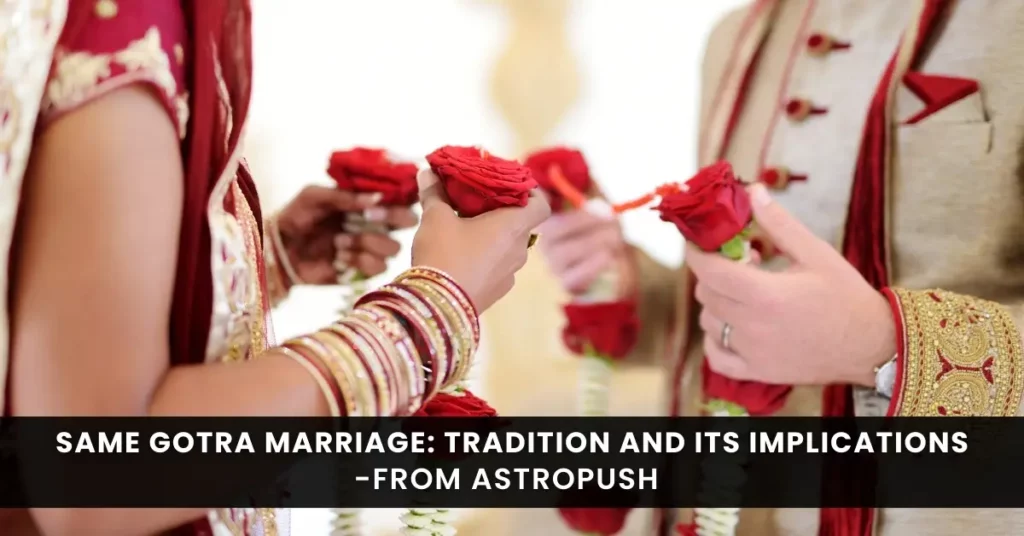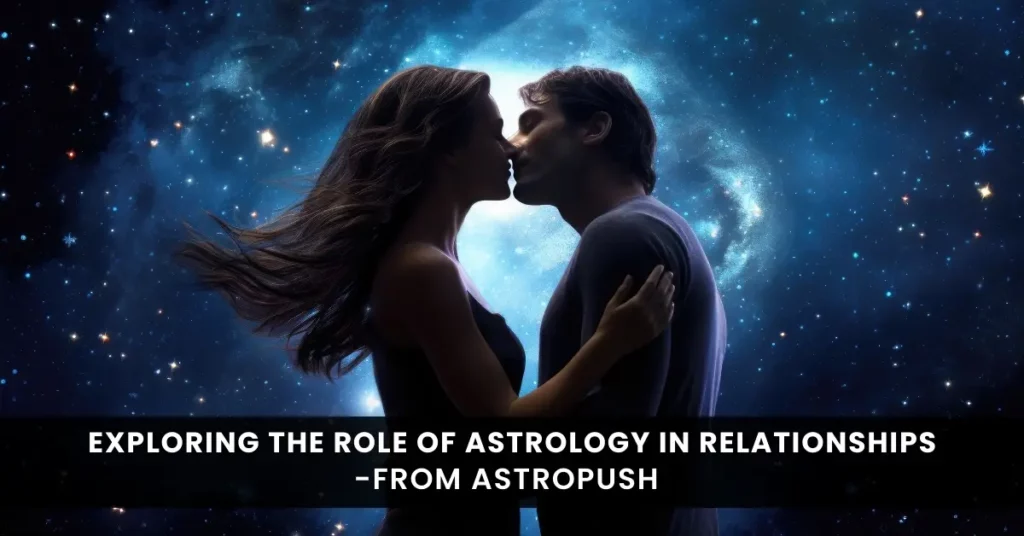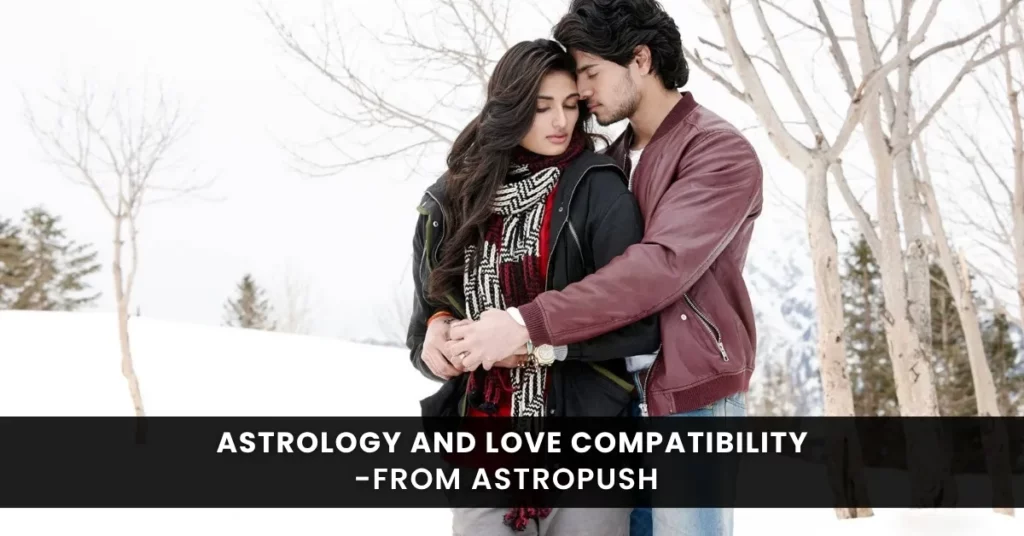Marriage is one of the most significant aspects of life, especially in Indian culture, where traditions and rituals play a crucial role in shaping societal norms. One such tradition that has sparked debate and discussion over the years is Same Gotra Marriage. In simple terms, “gotra” refers to the lineage or clan assigned to a Hindu family, usually tracing back to a common ancestor. The practice of avoiding marriage within the same gotra has deep-rooted cultural and religious significance. However, as society evolves, so do perspectives on this tradition. This blog will delve into the concept of same gotra marriage, its origins, implications, and how modern-day couples navigate this tradition.
What is Gotra?
To understand same gotra marriage, it’s essential first to grasp what “gotra” means. In Hinduism, gotra refers to a clan system that identifies a family lineage, typically traced back to a sage or a rishi (an ancient seer). According to Hindu traditions, people within the same gotra share the same ancestral bloodline and are regarded as siblings. This belief traditionally prohibits marriage between them.
Gotras are paternal and pass down from the father’s side of the family. Therefore, even if two individuals come from different families but share the same gotra, people still consider them part of the same lineage. The concept of gotra is similar to a surname in Western cultures but holds more profound religious and cultural significance.
The Tradition of Avoiding Same Gotra Marriage
The belief that marrying within the same gotra leads to incestuous unions because individuals from the same gotra belong to the same lineage drives the tradition of avoiding such marriages. Hindu culture, especially among communities that strictly follow Vedic traditions, deeply ingrains this belief.
Historically, communities avoided same gotra marriage to prevent genetic issues from inbreeding. By encouraging marriages between different gotras, they sought to maintain genetic diversity and ensure the health of future generations. This practice, deeply rooted in religious texts and cultural beliefs, has guided communities for centuries.
Also Read – Most Auspicious Nakshatras for Marriage as per Astrology
The Debate Around Same Gotra Marriage
In modern times, the tradition of avoiding same-gotra marriage has become a topic of debate. This is especially true as societal norms shift. Individuals are seeking greater freedom in choosing their life partners. Critics of the tradition argue that the concept of gotra is based on outdated beliefs. They believe it lacks scientific basis. They contend that the fear of genetic problems due to same-gotra marriage is unfounded. The degree of genetic similarity between individuals from the same gotra is minimal.
Moreover, many argue that in a multicultural and globalized society, individuals should be free to marry whoever they choose, regardless of gotra. For them, the tradition is seen as a restrictive practice that infringes on personal freedom and choice.
On the other hand, supporters of the tradition maintain that it is a vital aspect of cultural identity and social structure. They believe that following the tradition of avoiding same gotra marriage helps preserve the sanctity of lineage and respect for ancestral practices. For these individuals, the tradition is not merely about genetics but about upholding cultural values and continuity.
Also Read – Extra-Marital Affairs: 6 Zodiac Signs Prone to Straying in Marriage
Legal and Social Implications
In India, the legal system does not prohibit same gotra marriage. The Hindu Marriage Act of 1955, which governs Hindu marriages, does not mention gotra as a criterion for marriage. Therefore, couples who wish to marry within the same gotra can do so legally.
However, societal acceptance of such marriages varies across different regions and communities. In some conservative communities, same-gotra marriages are still met with strong opposition. This opposition sometimes leads to social ostracism. It can even lead to violence. The concept of “honor” plays a significant role in these communities. In these communities, people view defying traditional norms as dishonoring both the family and the community. They consider marrying within the same gotra as a direct defiance of these norms.
Despite legal protections, couples who choose to marry within the same gotra often face social challenges. They may encounter resistance from their families, social stigma, and in extreme cases, threats to their safety. This reality highlights the gap between legal rights and social acceptance, where personal choices are often in conflict with traditional beliefs.
Also Read – Biodata Format for Marriage: Crafting Your Ideal Introduction
Navigating Same Gotra Marriage in Modern Society
As society evolves, so do attitudes toward traditions like gotra. Many modern couples, especially those in urban areas, are increasingly challenging the practice of avoiding same gotra marriage. They argue that love, compatibility, and mutual respect should be the primary factors in choosing a life partner, rather than adherence to age-old traditions.
For couples who face resistance from their families or communities, open communication is crucial. Educating family members about the legal aspects and dispelling myths around genetic concerns can help in gaining their acceptance. Additionally, seeking guidance from trusted religious leaders or astrologers who are open to modern interpretations of traditions can also be helpful.
Couples can also explore other options like numerology, which focuses on the significance of numbers in a person’s life, or panchang calendar consultations, which provide auspicious timings for important events. With AstroPush, you can even contact the best astrologer in India anytime through our application for personalized advice.
Also Read – Kundali Matching for Marriage: Pathway to a Joyful Married Life
Cultural Sensitivity and Respect
While challenging traditional practices is a sign of societal progress, it is essential to approach the subject of same-gotra marriage with cultural sensitivity. It is also important to approach it with respect. For many, these traditions hold deep personal significance. They also hold cultural significance. Any discussions around them should be conducted with empathy. They should also be conducted with understanding.
For couples considering a same-gotra marriage, it is important to acknowledge their family’s beliefs. It is also important to respect those beliefs. At the same time, couples should assert their own right to choose.
Striking a balance between tradition and modernity is key to maintaining harmony within the family while also honoring personal choices.
In cases where families are strongly opposed to same gotra marriage, seeking the help of mediators or counselors can be beneficial. These professionals can facilitate conversations and help both parties reach a mutual understanding, reducing the likelihood of conflict.
Conclusion
Same Gotra Marriage is a complex and multifaceted topic that reflects the ongoing tension between tradition and modernity in Indian society. Although cultural and religious beliefs root the tradition of avoiding same gotra marriage, modern perspectives challenge its relevance in today’s world. As society continues to evolve, so too will attitudes toward this practice.
For couples navigating the challenges of same gotra marriage, it is important to stay informed, seek support, and approach the situation with sensitivity. Platforms like AstroPush can provide valuable guidance, offering services like chat with astrologer online, talk to astrologer online, free kundli, free horoscope prediction, kundli matching, numerology, panchang calendar, and more. With the right support, couples can make informed decisions that honor both their personal choices and cultural heritage.
Ultimately, the choice to marry within the same gotra should be a personal one. It should be guided by love. It should also be guided by understanding. Mutual respect is important as well. As society progresses, people hope for broader acceptance. They hope that everyone will celebrate all marriages. This includes marriages regardless of gotra. The focus should be on the love and commitment they represent.





